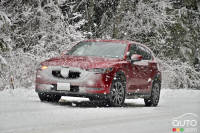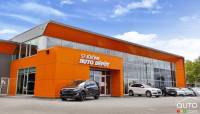The possibilities and limits – not to mention potential dangers - of artificial intelligence are just now starting to be understood. New uses for AI are cropping up seemingly by the month.
Another example comes from the automotive sector. Nissan is already using AI to spot paint imperfections on the vehicles it assembles at its plants in the U.S.
In fact, for the past three years, the Japanese automaker has been using a surface verification system called AUTIS. This AI-based system has improved the defect detection rate at Nissan's Smyrna plant in Tennessee by 7 percent, according to the automaker.
How it works
The system uses high-resolution cameras to take 15,000 images of each vehicle as it leaves the paint room. Those images are then analyzed by software to detect paint defects.
The human element is still of great importance, however.
“Technicians are critical for confirming and categorizing defects,” explained Nissan new model paint engineer Rod Lynch via a statement. “AUTIS is a tool to enhance their work, not replace it.”

The use of machines for paint inspection is not new. The inspection process has long partially automated; Nissan began using laser-equipped robots to detect defects in 1985. But this new AI-based system is far more advanced – and more efficient. Early robots could identify paint imperfections as small as 0.3 mm in 45 seconds, while the AUTIS system can identify defects as small as 0.2 mm in 20 seconds or less, according to Nissan.
Because the system catalogues the defects and stores everything in memory, engineers can access information to solve a recurring paint problem, which could be linked to the paint application stage itself at the factory.
According to Nissan, AUTIS has so far assessed more than 500,000 vehicles at the Smyrna plant. This plant produces more than 640,000 vehicles annually, based on 2022 data. Nissan also uses the system at its plants in Canton, Mississippi, and Aguascalientes, Mexico.
Those three plants produce the majority of the brand's models, including the Altima, Frontier, Kicks, LEAF, Murano, Pathfinder, Rogue, Sentra and Versa.
And this is just the beginning for artificial intelligence, which will be more visible and more easily exploited by users through the vehicles' multimedia systems, in particular.






















